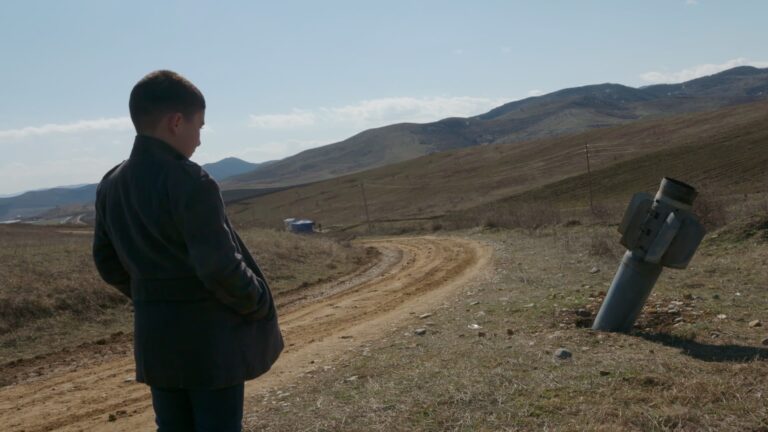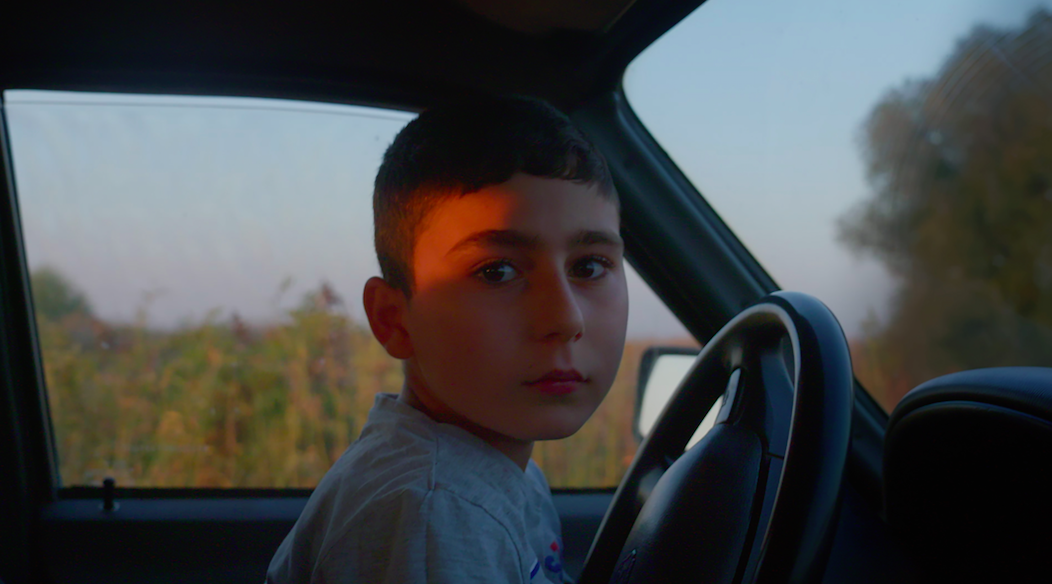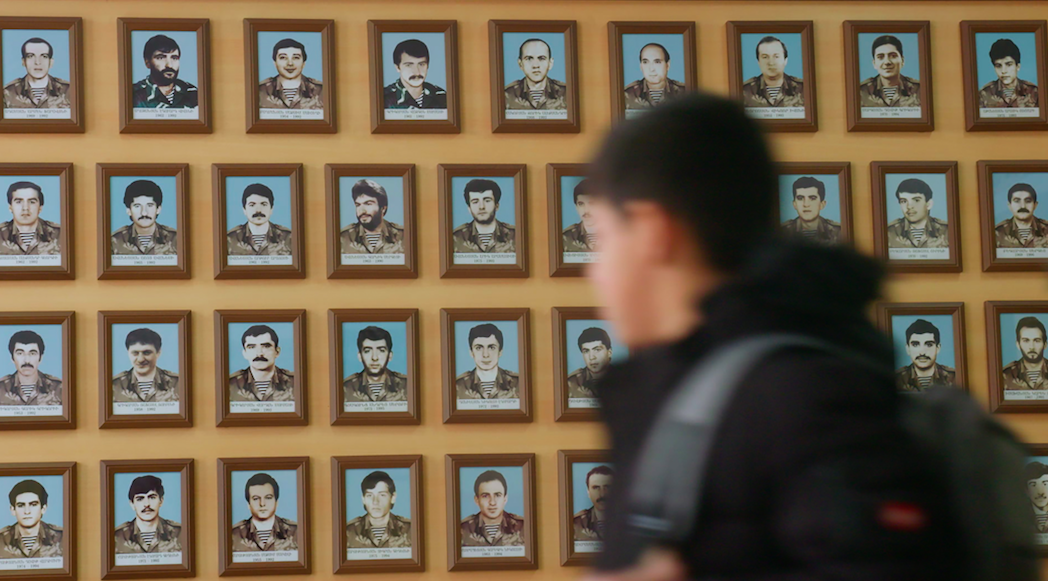
The film directed by Sareen Hairabedian is running in the Best Documentary Feature Film category for the 97th Academy Awards.
My Sweet Land portrays the picturesque simplicity of rural life in Artsakh, milking cows, playing games using nuts as marbles, gazing at the roaming ducks and golden bees and attending clay workshops. Artsakh, also known as Nagorno-Karabakh, is a mountainous enclave between Armenia and Azerbaijan inhabited by ethnic Armenians for millennia. Since the collapse of the Soviet Union, the Armenian population of Artsakh declared independence — a status unrecognised by the rest of the world. This has led to continuous wars with Azerbaijan, which seeks sovereignty over the enclave.

The situation is displayed through the eyes of 11-year-old Vrej, who gives for granted that he “lives in a country where war is expected to start at any moment.” His days are spent with his family, mostly his grandparents, playing with his peers in deserted streets. Vrej’s homeland feels like a paradise, even though it is strewn with mines from previous wars, shaping a country that remains unrecognized to the world. Matters suddenly change.
For nine months Azerbaijan blocked the only road that connects Artsakh to the rest of the world, restricting the flow of food, medicine and fuel supplies. On September 19th 2023, Azerbaijan launched a military assault on Artsakh. Over 100,000 indigenous Armenians were forced to flee their ancestral land. Vrej and his family were among. Filmmaker Sareen Hairabedian captures this untold story, to support the underrepresented. As she underlined: “I made this film because I strongly believe that the story of Vrej and all children, whose basic human rights are ripped away from them the day they are born, should be seen and heard. These children have hopes and dreams and deserve to live in peace—not as prisoners to inherited wars.”
Upon returning to his surviving village, the young boy confronts the devastation, new power dynamics, and a different approach to school, where military education is introduced to shape “future soldiers.” Little Vrej accepts the possibility of having to fight one day. “Maybe by the time I grow up the lost lands will be ours again,” is the question he posits, wondering if like film heroes his destiny is to die for his country. He candidly accepts the dark future that awaits him. However, his ideals aspire to a future of healing. He dreams of being a dentist one day, to fix the teeth of the people who live in his village of Karabakh, populated by roughly 150 inhabitants.
The Armenian-Jordanian documentary filmmaker, based in the U.S., depicts an intimate observational coming-of-age story, where Vrej is a quiet witness. The modern conflict he experiences, without having a say in the matter, leads him to reminisce about the tales of Tigranes the Great. He was the ruler of Armenia who was held hostage by a Parthian king, and was released when he surrendered his lands in exchange for his freedom. This fragment in history serves as a parable for the contemporary condition of a land, whose political landscape changed with the collapse of USSR, and was held in the clutches of those who tried to conquer it.

The film director is acquainted with the rules of war, as she said: “As a great-grandchild of Armenian genocide survivors, I carry the deeply-rooted traumas of my ancestors who were expelled from their indigenous lands.” By documenting a journey through war and turmoil, she unveils how a land that is on the verge of vanishing, is devastating its society.
The intrusiveness of the war in the film is brash, whereas Sareen Hairabedian’s approach in chronicling the lives of those affected is discreet. She tiptoes around the struggles of the people she captures on camera, to share what it means to grow up in a militarized zone. My Sweet Land is a delicate rallying cry in defense of a land at the mercy of warfare. It is a testament to its people, where hope and trauma determine their resilience across generations.
Final Grade: B-
Photos Courtesy of Soilsíu Films

